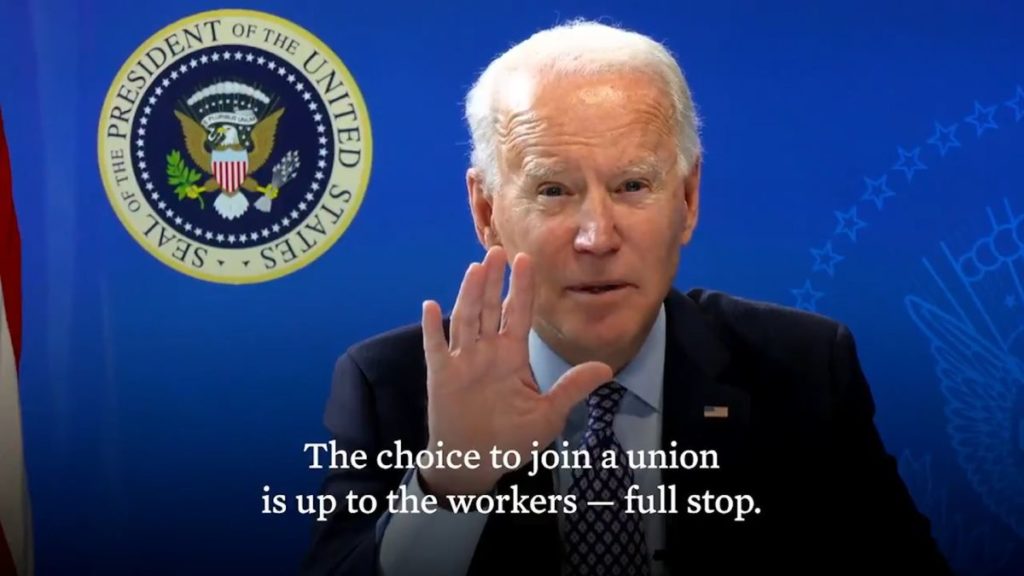The Amazon Defeat

As expected, Amazon was able to defeat the union attempt at its Bessemer, Alabama plant. A few thoughts on this.
First, a lot of people are linking to the Jane McAlevey piece that lambasted the Retail Workers for not doing the basic work needed to organize the plant. Clearly written ahead of time, it summed up a lot of things that I had heard that they just weren’t prepared to win this campaign. Now, it’s worth noting that I usually take McAlevey’s critiques with a grain of salt because she comes from the Labor Notes wing of the labor movement, which means that the problem with organized labor is always weak/corrupt/indifferent labor bosses not being radical enough or doing enough organizing to win. She’s often not wrong about this to an extent, but she has a huge axe to grind. That said, it seems awfully clear from her piece and other things I’ve read that they really didn’t lay enough groundwork. There was serious confusion over the number of eligible workers, they really failed at countering the union dues question, and the lack of house calls is just befuddling. Moreover, they simply never had a majority of clear support.
Second, it seems that the RWSDU decided, rather brilliantly actually, to throw a Hail Mary and nationalize the campaign. Getting Joe Biden to speak out in favor of the campaign, an unprecedented moment in American labor history, was quite the coup. But it probably didn’t actually matter. Many of the votes were likely already cast and given that only 50% of the workers bothered even casting a ballot at all, it’s pretty clear that the Bully Pulpit is not the gamechanger that so many want it to be. But still, getting Biden on this, having rallies that included Bernie Sanders, Sara Nelson, and other big name leaders of the labor-left, this all made the campaign become a national conversation about work in America and the problems unions face. This has great value in itself. It just didn’t make any difference in, you know, actually winning the election.
Third, and this is in the end the most important part, the entire system of union elections is completely broken. There’s been lots of stories about the overwhelming power of anti-union propaganda in the Amazon plant. Just having this now part of the American conservation makes the nationalization of the campaign worthwhile. From the moment the election is announced, the employer can bombard workers with highly sophisticated anti-union propaganda. The balance of power here is completely off kilter.
Fourth, there is a clear solution here–the PRO Act. Of course, that’s not going to happen so long as there is a filibuster and Joe Manchin is having the time of his life right now. But a bill has passed the House that would have outlawed much of what Amazon did in this plant, not to mention much of the right-to-work provisions of the Taft-Hartley Act. We have not had comprehensive labor legislation in this nation since 1938. The 83 years since have seen employers completely capture the union election process. In fact, it’s gotten so desperate that lots of union leaders are just giving up on the expensive and likely to fail plant campaign method and pushing for sectoral bargaining. I don’t think this is likely to work and there are some downsides here too, but it makes sense given the horrifying situation that stultifies any gains for unions.
Finally, it’s worth noting that the actual margin of the vote was no doubt quite a bit closer than the announced numbers. That’s because as part of the NLRB process, the company (or the union) can challenge ballots and those ballots are not even opened unless the total margin of the counted vote is within the margin. Amazon challenged hundreds of ballots and surely almost all of those were yes votes. But we will never actually know. Another sign of the broken NLRB.
In the end, I don’t think was a “disaster” for labor. A victory would have been an enormous shot in the arm. A loss? Well, we are just where were before. There will be more organizing. There will be more anger at how Amazon and the other new giant employers of the 21st century treat workers. It took decades to organize Ford and GM and U.S. Steel and other giant employers of the 20th century. It might decades to organize Amazon and Target and Google and Walmart. But the fight will continue.


